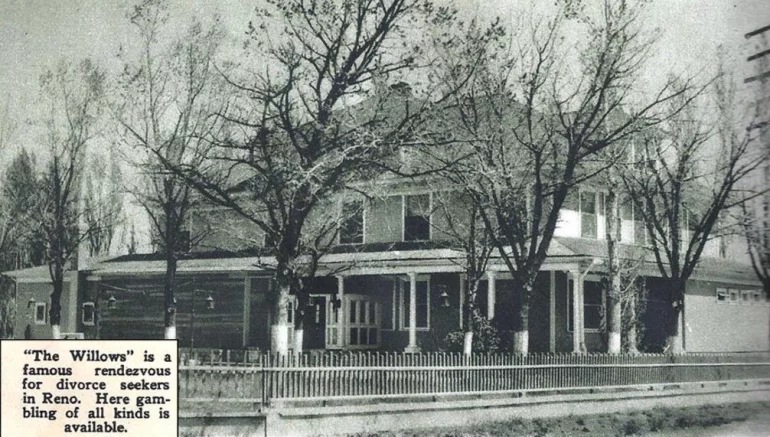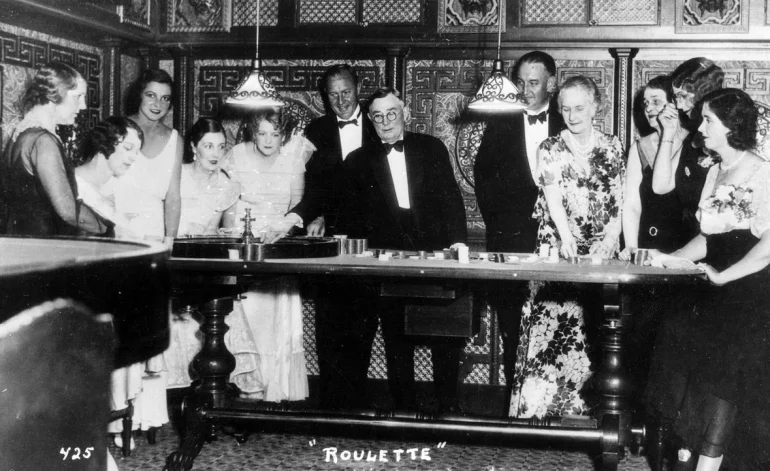_770.webp)
James C. McKay and William J. Graham were the biggest crime bosses in Reno in the 1920s and 1930s. We want to remind you that Reno, the "biggest little town in the world," as It used to be referred to, was considered the gambling capital of the United States.
McKay owned the largest local gambling clubs even before the casino's official opening in 1934. Therefore, we can say that he used to play a very important (even if it was not positive) role in the town's history.
Brief Biography of James McKay
James was born and grew up in Virginia City, Nevada. The boy showed interest in the family business in his prosperous family-owned coal mines.
Later he worked as George Wingfield’s security guard. His boss was a banker and coal tycoon. Soon he noticed the boy’s potential and began to give him more responsible missions.
Sometime later, Wingfield introduced McKay to Nick Abelmann, who offered him a leading position and a share of his Big Casino. Thus, James entered the gambling business.
According to the memoirs of his contemporaries, he never relied on honesty and cleanliness while achieving his goals.
He could easily beat an impertinent casino visitor to a pulp, take someone else's money, or organize a scam behind the backs of his partners.
Moving to Reno
McKay and his new friend Bill Graham moved to Reno in 1920. They moved there on behalf of George Wingfield, who decided to open a casino on his property. James and Bill decided not to be limited by Wingfield’s affairs and organized their criminal business. They were interested in bootlegging, prostitution, betting, and illegal casinos.
Soon, McKay became famous as a skillful gambler. He could worm his way into jockeys’, dealers’, pit bosses’, and sports managers’ confidence to gain access to insider information, which he skillfully used for his purposes. He was even nicknamed "Cinch" because his bets rarely lost.

In addition, he had a gift of gab that allowed him to pull customers’ legs, deceive the police, and handle affairs with other members of the criminal world.
Heyday
A little bit later, McKay and Graham acquired a club near the town of Reno for forty thousand dollars. They completely renovated and opened it under the title The Willows.
Despite a dry law, companions provided customers with a wide range of alcoholic beverages supplied by their friend, a bootlegger from San Francisco. A large casino was available in their casino, and customers could enjoy the services of prostitutes.
Their business was flourishing. Partners opened several similar clubs, including the Bank Palace Club Casino, the largest gambling house in the country.

At that time, Graham and McKay's influence in Reno's criminal world was so great that any considerable fraud could not be organized without their participation. Visitors to their clubs included ordinary citizens, movie stars, popular musicians, and even famous politicians.
In the early thirties, a campaign that supported the legalization of casinos was initiated. McKay knew in advance that gambling would be allowed and began to upgrade the Bank Palace Club. The casino area was doubled, and the range of services was expanded. These changes made it the best gambling house in the United States.
Reno gamblers liked blackjack. Do you enjoy the game?
| Name | Soft | Return to player | ||
|
|
99.78% | |||
|
|
99.69% | |||
|
|
99.65% | |||
|
|
99.6% | |||
|
|
99.59% | |||
|
|
99.54% | |||
|
|
99.54% | |||
|
|
99.54% | |||
|
|
99.33% | |||
|
|
98.55% |
The Decay
James was in the gambling business until 1952. By then, his clubs could no longer compete with larger gambling monopolies. Moreover, he spent several years in prison for fraud, which did not contribute to the successful operations of his casinos.
Having finished gambling, James spent the rest of his life peacefully and calmly, enjoying his family and loved ones. McKay died in June 1962.




































